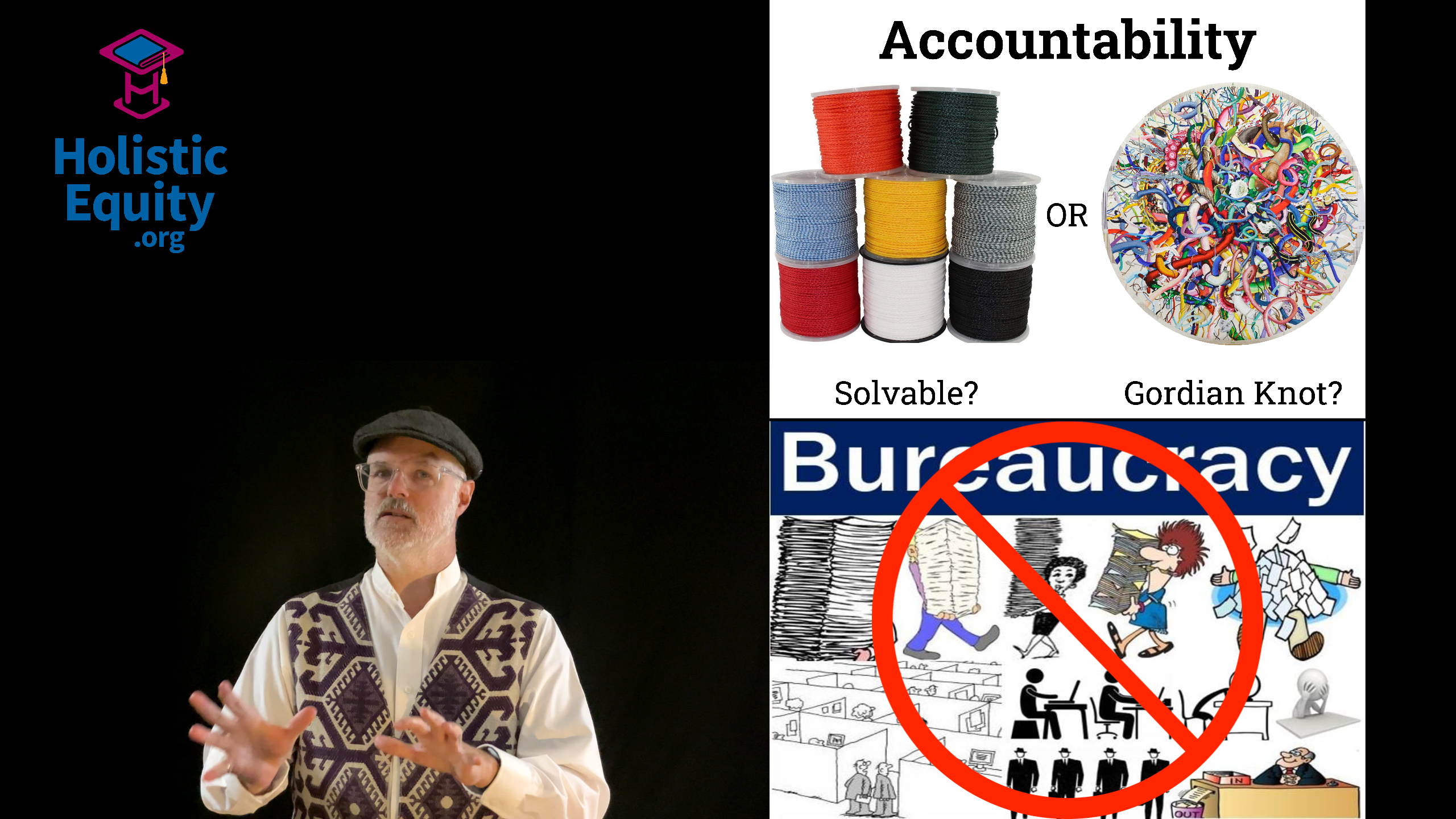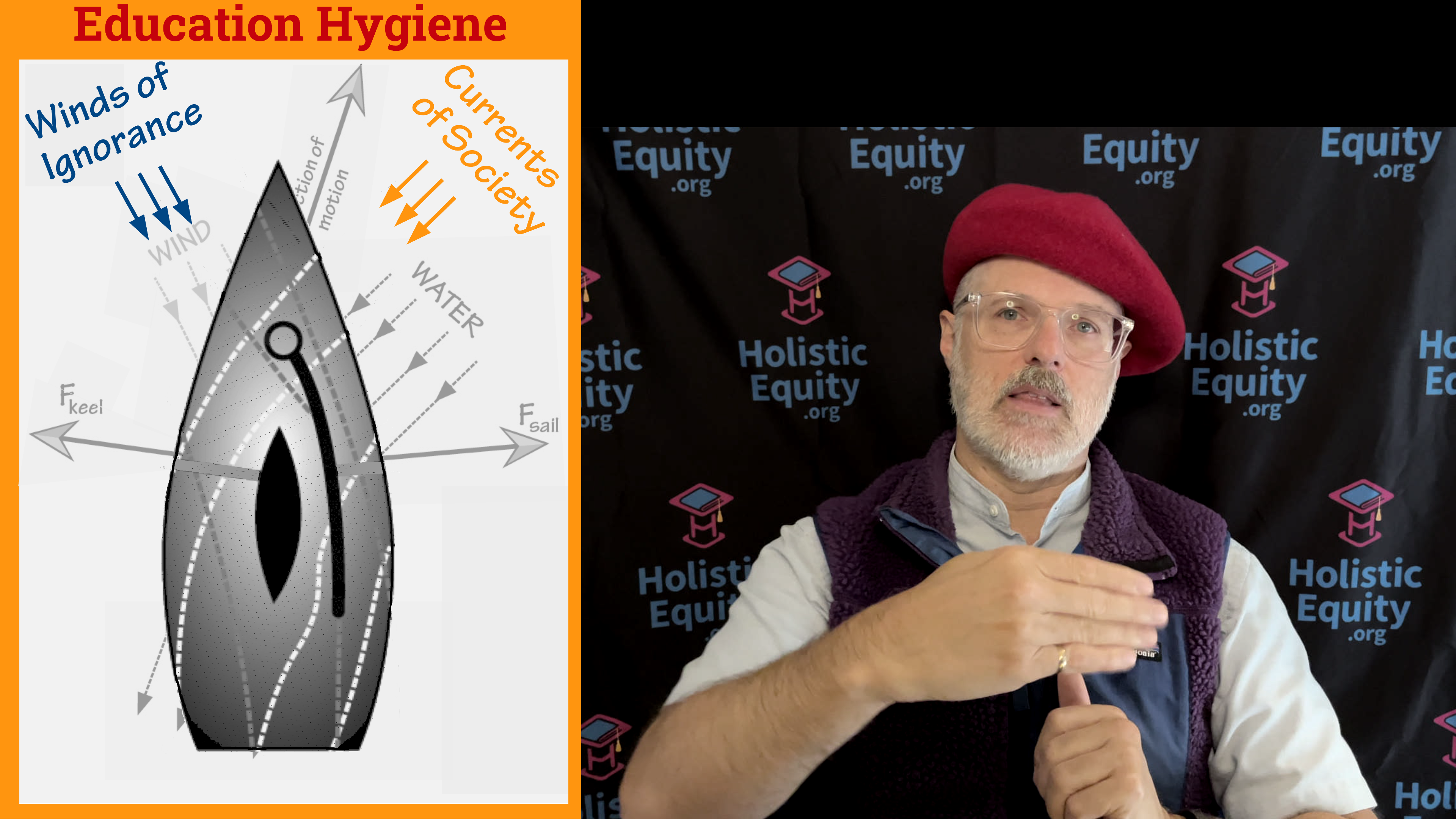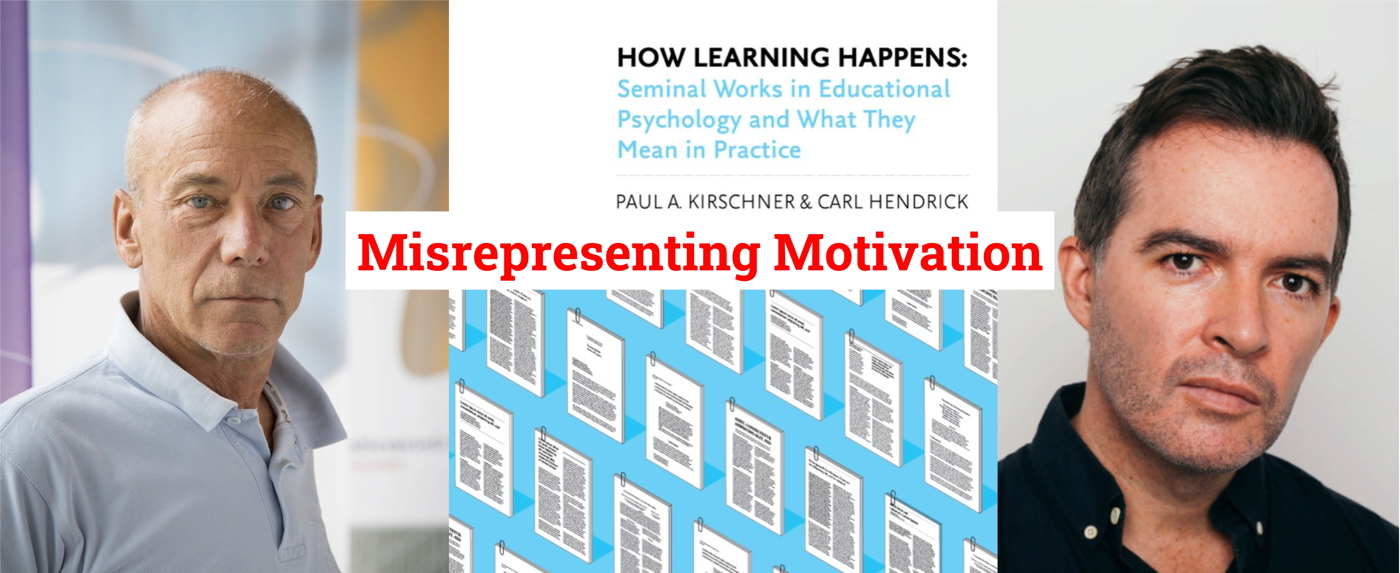Politics in Education May Be Bad, But Both Sides Get It Wrong
Politics in education: despite apparent agreement that there is TOO much, it remains.
You may have noticed that education, like politics, has conservative and progressive sides.
But you might be surprised what it takes to be a radical in education, like me.
Conservative Politics in Education
In order to get a handle on politics in education from the conservative side, I’ll start with my opposition to a form of education conservatism expressed by Robert Pondiscio,.
In his criticisms of social-emotional learning (abbreviated SEL), Pondiscio is concerned that the government teachers should NOT be providing SEL because that is the sole prerogative of parents and other non-school institutions.
Delivering academic content is what schools are supposed to do, in his view, so SEL is an unnecessary distraction from a teacher’s primary duty.
This is an echo of Back-to-Basics, the poster child of educationally conservative movements.
The three core essentials of Back-to-Basics were exclusive focus on the 3Rs, strict obedience to teacher authority, and no nonsense in the classroom,
Pondiscio sees SEL as nonsense that does not belong.
(I will link to a more thorough progressive critique of Pondiscio’s report about SEL underneath this video.)
However, the idea that SEL is nonsense that does not belong in the classroom can ONLY be true if the causally relevant features of SEL, which are the needs of children, operate in a very specific way.
To understand this, let’s think about some other less controversial needs: air and food.
How many kids get ready for school like Van Druce here?
Van is going to show up to school today with a self-contained breathing tank full of air taken from his home.
His parents don’t trust the government school to provide good air.
Given some of the air quality problems that have been observed in some schools this could actually happen, but it’s not a practical solution.
On the other hand, most parents feed their kids breakfast at home and many send them to school with a lunch.
Parents can, and many do, provide support for their children’s primary need for food because they don’t trust their schools to do the job adequately.
Whereas they DO not, and as a practical matter CANnot, provide support for their children’s primary need for air while the child is at school, leaving aside my fantasy about young Mr. Druce.
You might say that parents are forced to trust the school with nurturing their child with regard to air, but not food.
Pondiscio and the Back-to-Basics crowd assume that parents can provide their kids with enough SEL at home to last the entire school day, as if it is a need more like food than air.
School teachers are supposed to teach academic content to the exclusion of SEL, since students’ needs are presumed to have already been provided for by their parents.
However, the science is clear that provisions for psychological needs MUST be made in real time in order for teaching to be effective.
Primary psychological needs are more like air than food.
What may or may not have happened at home with regards to those needs is irrelevant.
If educational conservatives decide that teachers cannot be trusted to nurture children, where “nurturing” is merely supporting the satisfaction of their human needs, then their only option is to home school.
A significant number of conservatives have taken that route, but research into homeschooling suggests that the most successful homeschoolers are not isolating their children in the home.
Experienced homeschooling families do not conform to the ridiculous stereotype of Mom becoming a mirror image of the public school teacher by doing school stuff at the kitchen table.
Successful homeschoolers across all ideologies and demographics are those that seek out, as a routine matter, learning beyond the home.
The secret to great homeschooling is that the kids get to go out into the community to experience more varied social situations than any school could ever hope to provide.
Whether parents know it or not, they routinely trust others to nurture their children because those others provide primary psychological need supports as an inherent part of serving and leading the children.
Even the most successful homeschooling parents entrust their children to others who will provide support for primary psychological needs, even if those parents believe otherwise.
Expressing these truths about both learning and homeschooling often makes me seem like more of a progressive than a conservative when it comes to politics in education.
I AM an education conservative to the degree that I am interested in conserving the non-bureaucratic aspects of schools that can nurture children and teachers.
I am against any form of educational conservatism that makes the delusional assumption that children must NOT be nurtured in school.

Progressive Politics in Education
Flipping to the progressive side of politics in education, let’s consider charter schools and vouchers.
Progressives are typically against them.
One concern is that charters and vouchers will undermine the public nature of schools.
If private entities take over managing schools then they will not be accountable to the public that the schools are supposed to serve.
Another criticism is that they will reproduce the same sorts of inequities that exist in the regular system, thus causing major disruption without delivering benefits to those who need them the most.
On the assumption that accountability is a technical issue that can be solved, rather than an irresolvable gordian knot, I have not found the undermining argument to be convincing.
Of course the mainstream bureaucratic schools will be undermined, that’s the point.
The mainstream schools are notoriously resistant to change, as is true of all bureaucracies.
The charter school movement was originally designed to force change by providing charter schools with relief from some of the bureaucratic restrictions that typically stifle innovation.
If educational accountability is truly a technical issue then the challenge is to implement a proper accountability system.
The original point of charter schools was to trade off the micro-management typical of school bureaucracies for a different and more responsive system of accountability to the public.
Thus, I take a conservative view in which I am supportive of charters and vouchers AS LONG AS they are implemented with strong accountability measures that align with my holistic view of education and schooling.
That alignment is typically missing, so I am sympathetic to many of the progressive criticisms of how charters have been implemented.
Merely providing academic accountability, without any measures of the psychological conditions of the schools is not going to do the job.
But at the same time, my anti-bureaucratic sensibilities motivate me to support charters, vouchers, and home schooling.
I want to be clear that I am an education progressive only in the sense that I want schools to PROGRESS FROM the inhumane bureaucratic institutions they are now into humane institutions that nurture the children they serve and the teachers that are on the front lines of that form of service.
I am against any educational progressivism that makes the delusional assumption that bureaucratic institutions are capable of nurturing children.
The true challenge is to create and maintain non-bureaucratic institutions for educating children, independent of whether the managing entities are governments, non-profit boards, or some mix and match of both.
(To be clear, I am against for-profit schooling in all forms because maximizing profits through cost-intensive nurturing services, like education and health care, creates irreconcilable conflicts of interest for management.)
Now, let’s consider public discourse about education, to get a handle on whether my stance makes me a radical when it come to politics in education.
Book banning, anti-racism, gendering bathrooms and sports, and many other issues are getting a lot of attention in the public sphere.
Both sides argue endlessly based on hyping vague fears about what MIGHT be happening to kids or shout down the other side with the same old ideological slogans when something terrible actually does happen to them.
However, the most important issues in education boil down to the primary human needs of students and teachers, but that is not how they are understood and talked about in the media.
The real problem is that we don’t have the data on need satisfaction and thwarting that could both illuminate, and eventually resolve, most of those problems.
If we collected appropriate data that could demonstrate whose needs are being thwarted and how, then we could actually figure out which of these are real problems, not delusional bug-a-boos, and solve them.
I gladly claim the identity of a radical because I have a laser focus on aligning the institutions of schooling with human nature.
It is my firm conviction that the eight primary human needs that have solid scientific support are an indisputable foundation for understanding human nature.
I fervently hope that schools will align themselves with human nature so that I do not remain a radical forever.
My aspiration is to leave my radicalism behind by helping schools to become humane institutions that honor and respect the folks that they serve.
Summary of Politics in Education
To summarize: Pondiscio and the Back-to-Basics folks are championing an educational SCUBA position that is delusional.
Those who oppose charters and vouchers are championing a pro-bureaucracy stance that is also delusional.
Both sides are wrong to the degree that their positions will perpetuate the bureaucracy and lead to undermining teachers who have a duty to nurture children.
Championing the nurturing of children is currently a radical position, but I hope that will not last long.
In order to join me in taking this radical stance towards politics in education I encourage you to read about the Deeper Learning Resolution in my book Schooling for Holistic Equity: How to manage the hidden curriculum in K-12.
The resolution clearly spells out the needs and the central role they play in learning.
Schools of all kinds can use the resolution to make humanizing changes through top-down signals that will encourage bottom-up action.
If you would like take a deep dive into the strategy and the philosophy behind the resolution then you should read
If you are a teacher who would like to collect data on how well your students are being nurtured in your classroom, I encourage you to try out the Instant Climate tool.
Thanks for watching.
This article was printed from HolisticEquity.com



